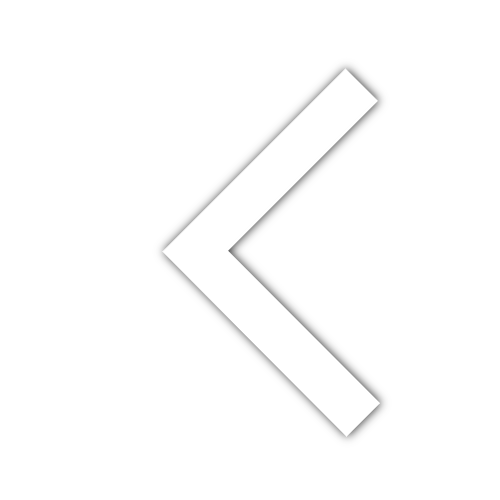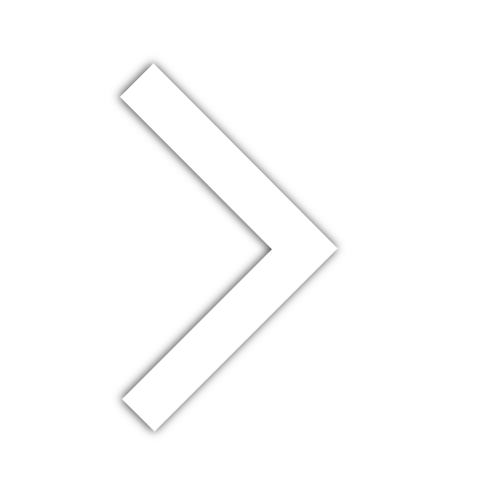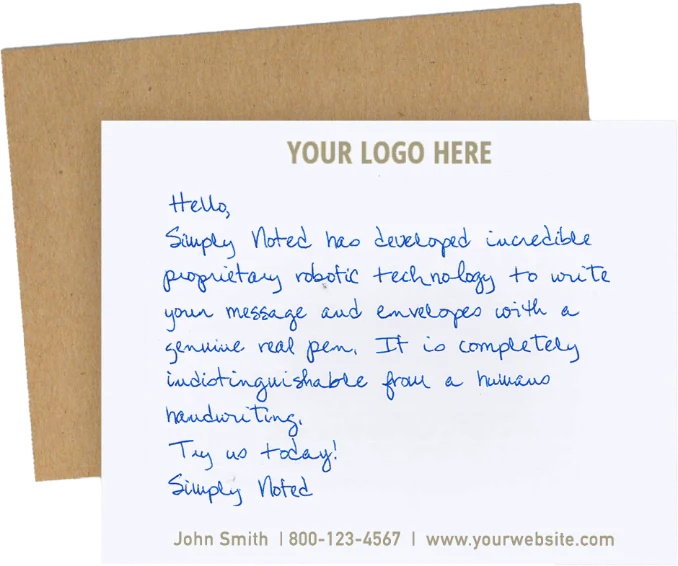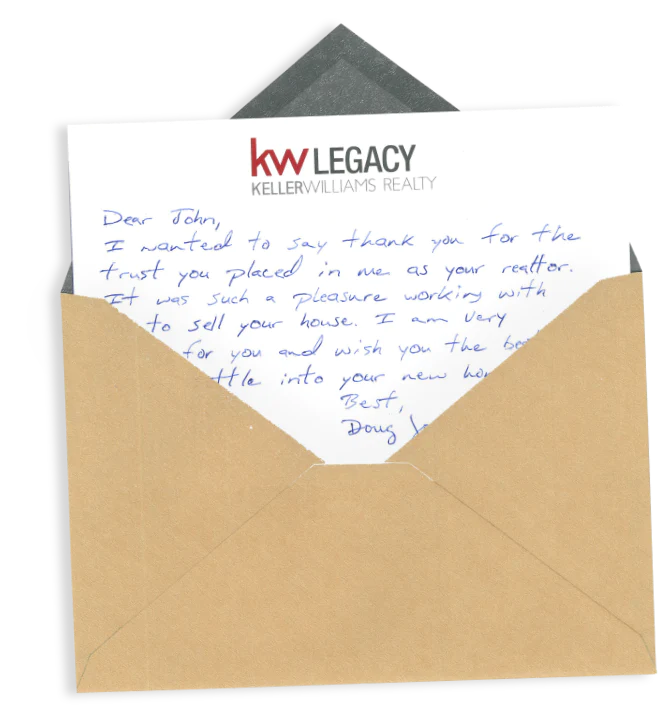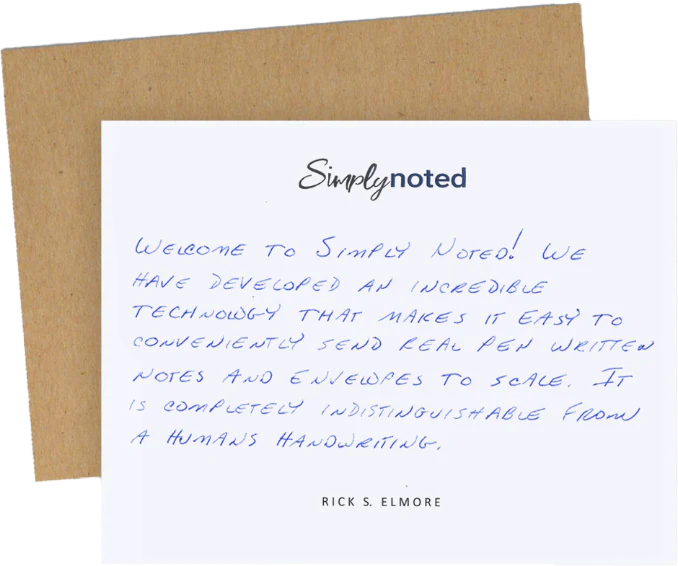25 Ways to End a Professional Letter

25 Ways to End a Professional Letter: A Complete Guide
Handwritten professional letters are quickly becoming a lost art. Most professional communication these days happens through email, or short messages on a phone/cell phone messaging platforms or informal email threads. While these tools are super fast and convenient, they really lack the warmth and sincerity that a handwritten letter can bring. A carefully written professional letter shows effort, a willingness to be respectful, and attention to detail that digital messages struggle to convey.
An appropriate closing is a key part of professional letter writing, as it signals the completion of your message and conveys respect or goodwill to the recipient.
Understanding how to wrap up a professional letter is just as important as knowing how to start it off. Getting the letter closing right, the closing paragraph and the final statement are all the things a recipient is going to be reading at the end, and they can really influence whether or not the whole letter makes a good impression.
Your letter closing is the last thing your recipient will read, which is why it's essential to end a formal letter or email appropriately. Whether you’re writing a formal letter, a business letter or a professional note that’s a bit more personal in tone, getting the letter ending just right can really reinforce professionalism, show your appreciation and encourage someone to get back to you.
SEE ALSO: Handwritten Business Letters: How They Can Help Your Business
INTRODUCTION TO LETTER WRITING
Letter writing remains a cornerstone of both professional and personal communication. Whether you’re drafting a formal letter for a business setting or penning a personal letter to a friend or close colleague, the way you structure and present your message can make a significant difference. In a professional setting, a business letter is often used to convey important information, requests, or updates with a clear and respectful professional tone. The body of the letter should be organized and focused, ensuring the recipient easily understands the main ideas and intent behind your writing.
Personal letters, on the other hand, allow you to express gratitude, share kind wishes, or maintain connections with friends and close colleagues. Regardless of the context, every letter should include a thoughtful introduction, a well-developed body, and a strong closing. Taking the time to craft your message carefully not only demonstrates professionalism but also leaves a lasting impression on the recipient. Whether your goal is to communicate a business proposal or simply to express appreciation, mastering the art of letter writing is essential for effective communication.
WHY HANDWRITTEN PROFESSIONAL LETTERS STILL MATTER TODAY
Professional letters create a sense of enduring presence that just can’t be matched by digital messages. A handwritten letter can feel very thought out and very intentional. It sends a message that the stuff you’re writing was important enough to be written down, signed, popped into an envelope and then sent off by mail. The professionalism and tone of the entire letter, from the opening to the closing, play a crucial role in the impression it leaves, making careful attention to every detail essential.
In the professional world, handwritten letters actually stand out amongst all the other emails flying back and forth. They can help build professional relationships, show that you’re a professional in your own right and leave a good impression long after the message has been read. And while it’s traditional to write personal letters by hand, professional letters are just as much better off when the message behind them carries weight.
3 THINGS TO CONSIDER BEFORE WRITING A BUSINESS LETTER

1. Take Some Time to Write It
Writing a professional letter should never feel rushed. Taking your time lets you focus on the main point, get the structure of the main body right and plan a great closing paragraph. Pay special attention to the first paragraph, as crafting an engaging opening that clearly states the main point of the letter is essential for setting the tone and guiding the focus of your message. From start to finish of a well written letter, you should have clarity, confidence and professionalism.
2. Personalise the Whole Thing
Don’t just copy and paste the same template every time. Personalising the message will greatly strengthen professional communication and show respect for the recipient. Use the recipient’s full name when it’s right to, make sure you’ve got the address right and tailor the message to the relationship, what you’re asking for or the reason you’re writing. If you are enclosing any documents, clearly list each document to ensure complete communication.
3. Bring Back The Good Old Days of Handwritten Correspondence
Handwritten letters are rare, which is exactly why they can be so impactful when you do send one. Sending a paper letter instead of an informal email can actually elevate your message and really show your gratitude, interest or sincere thanks in a memorable way.
4 MISTAKES TO WATCH OUT FOR WHEN WRITING YOUR LETTER
1. Ending With A Sign-Off That's Too Weak
Just writing your name without a proper sign-off when you end a letter can make your letter feel unfinished. A proper sign-off reinforces that professional tone and brings some structure to the letter closing.
2. Not Checking Over What You've Written
If the words just don't feel right to you, they may not feel right to the recipient either. Always check over the body of the letter, the closing statement and the overall format before sending it off.
3. Relying Too Heavily on Email
Email is useful, but important messages deserve a lot more care and attention. A paper letter will show you’ve put some thought into it - especially when you’re making a request, showing your appreciation or addressing sensitive details. Whether your message is sent by email or on paper, it should be concluded in the same way, with a thoughtful and appropriate closing.
4. Printing Instead of Writing in Ink
Printing out a letter can make it feel a bit impersonal. Writing in ink can make the letter feel warm and intentional - which is especially important in professional correspondence.
UNDERSTANDING LETTER CLOSINGS
The way you close a letter is just as important as how you begin it. A well-chosen letter closing can reinforce your message, set the tone for future communication, and leave the recipient with a positive impression. The closing paragraph or statement should succinctly summarize the main point of your letter, whether you’re writing a professional letter or a more personal note. When selecting a closing, consider your relationship with the recipient, the purpose of your message, and the overall tone you wish to convey.
For formal letters, closings like “Sincerely” or “Best regards” are appropriate and maintain a professional feel. In personal letters or when writing to someone you know well, a more informal closing such as “Thanks” or “Kind regards” can feel warmer and more genuine. Always remember to capitalize the first word of your closing, and leave a blank line between the closing and your signature to keep the format clean and easy to read. A thoughtful closing not only wraps up your letter neatly but also encourages a positive response from the recipient.
FORMAL VS CASUAL LETTER ENDINGS
The type of letter closing you use will really depend on your relationship with the recipient. In a formal letter or business letter, a casual closing might not be right. For example, certain closings like 'Regards' are suitable when you want to convey respect without implying a close relationship, making them appropriate for less formal communication such as emails and some business contexts. On the other hand, if you’re writing to someone you know well, overly formal language can feel a bit stiff.
Before choosing a closing, ask yourself:
- Is this a professional setting or a personal one?
- How close are you to the recipient?
-
Would a more informal closing feel natural or forced?
How you answer these questions will help you decide whether a formal or informal closing is best.
CHOOSING THE RIGHT CLOSING BASED ON YOUR RELATIONSHIP
For professional relationships, tried and trusted closings such as 'sincerely' or 'best regards' are solid and effective choices. When writing to people you know well in a professional context - your colleagues or people you've built up a good relationship with - slightly warmer phrases might be okay.
Don't use language that's too casual unless the relationship is clear and it feels comfortable. A professional tone should always come first - regardless of how friendly the message feels.
25 PROFESSIONAL LETTER ENDINGS YOU CAN USE
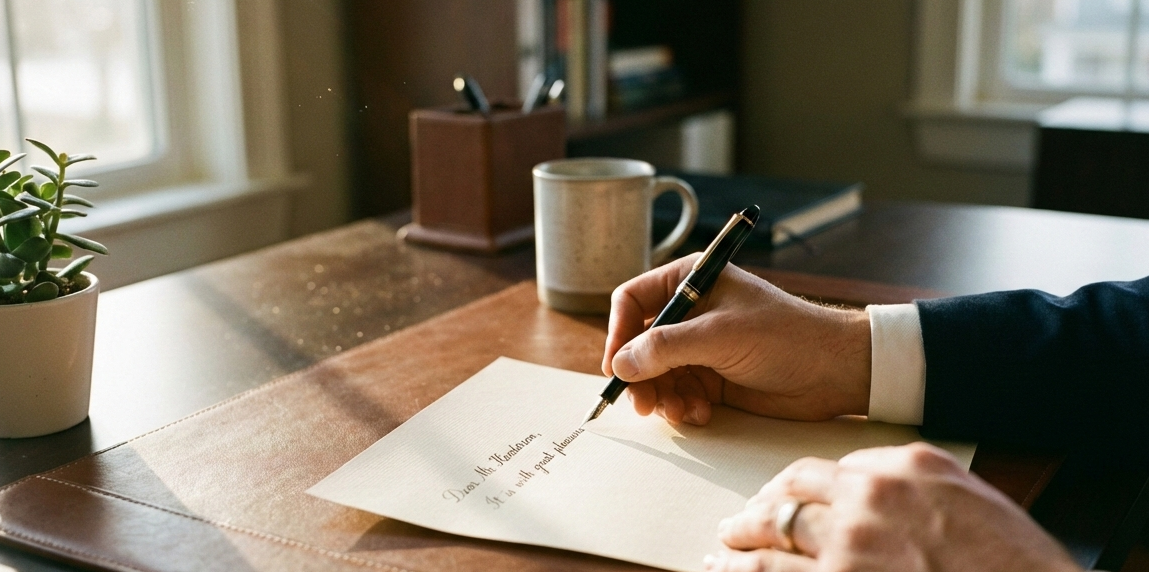
- Best
- Best wishes
- Warm regards
- Faithfully
- Cheers
- Yours truly
- With regards to you
- Always at your service
- I'm looking forward to hearing from you soon (friendly)
- I'm looking forward to speaking with you soon (business)
- Thankfully
- Warmest regards
- Best wishes for your success
- You can always depend on me
- Wishing you well
- Indeed
- With best wishes for your success
- Yours sincerely
- I'm really looking forward to hearing from you soon - that would be a real help (professional)
- I'm really looking forward to speaking with you soon - that would be great (formal)
- Take care of yourself
- All the best for the rest of your day
- Best regards for now
- Wishing you all the very best of luck - you will do great
- Thank you for your time and consideration
Choosing the right closing is crucial in making a good impression and showing respect for the person reading your message.
WHY A GOOD SIGN-OFF MATTERS
A professional sign off should generally include your first and last name, and if relevant, your job title as well. This really helps the recipient understand your role but more importantly also gives you credibility.
Its not good practice to end formal letters abruptly, a thoughtful sign off shows that you put some thought into the message you are sending, that you are clear and respectful. This makes a big difference in how your message is perceived by others.
SEE ALSO: Handwritten Holiday Cards for Businesses and Brands - still a great idea
ENDING A PAPER LETTER
When it comes to ending a paper letter, attention to detail is key. Your closing statement should be clear, concise, and maintain a professional tone, ensuring your message is both respectful and memorable. After your closing statement, include your signature, followed by your first and last name to provide a personal touch. Beneath your name, it’s important to add your contact information, such as your address, phone number, and email address, so the recipient knows how to reach you if needed.
Using a formal format like block format helps keep your letter organized and easy to read. Make sure your letter is single spaced, with a blank line between each paragraph and before your closing, to enhance readability. Expressing gratitude and appreciation in your closing statement can leave a positive impression, showing the recipient that you value their time and consideration. By following these steps, you ensure your paper letter ends on a professional and courteous note.
SIGN OFF AND CONTACT INFORMATION
A professional sign-off and clear contact information are essential components of any business letter. Your sign-off should match the tone of your message, phrases like “Sincerely” or “Best regards” are universally accepted in professional communication. After your sign-off, include your handwritten or typed signature, followed by your full name. If relevant, add your job title to clarify your role within your company or organization.
Below your name and title, provide your contact information, including your phone number and email address. This makes it easy for the recipient to respond, whether they have a follow-up question, a meeting request, or simply want to acknowledge your message. Including the date and your address can also be helpful, especially in more formal or official correspondence. By ensuring your sign-off and contact details are accurate and complete, you make it simple for the recipient to respond and continue the professional relationship.
INFORMAL EMAIL ALTERNATIVES
In some situations, especially when communicating with colleagues you know well or in less formal settings, using a more informal closing in your email can be appropriate. Phrases like “Thanks,” “Best,” or “Take care” can convey warmth and friendliness, provided you maintain a professional tone throughout the rest of your message. It’s important to consider your relationship with the recipient and the context of your communication before choosing an informal closing.
Even in informal emails, structure matters. Make sure your main point is clear, and use key points or bullet lists to organize your ideas for easy reading. Short paragraphs and a logical flow help ensure your message is understood and encourages a prompt response. While a more informal closing can help build rapport, always keep the overall tone respectful and professional, especially if you’re discussing important topics or making requests. This balance helps maintain strong professional relationships while allowing for a more personal touch in your communication.
FINISHING OFF WITH A THOUGHTFUL SENTENCE - NOT JUST A SIGN-OFF
The final sentence is your last real chance to guide the reader. Rather than just signing off every time, you should aim for one sentence that reinforces your message or says thanks. A good closing paragraph can:
- Sum up the main point
- Express your gratitude
- Encourage a response
- Show your professionalism
Even a simple "thanks" can be very powerful when used just right.
THOUGHTFUL CLOSING SENTENCE EXAMPLES

Here are some examples of easy-to-use closing sentences that will keep your message looking professional:
- "Thanks so much for your time and consideration."
- "We really appreciate your interest and look forward to working with you."
- "If you need any more details, please don't hesitate to get in touch."
- "Thanks for your continued support - it means a lot"
- "We are really looking forward to hearing back from you."
- "Your cooperation is really appreciated."
- "Thanks so much for giving us the chance to serve you."
- "If you have any questions, feel free to give me a call."
Each example will help end your letter in a good and respectful way.
SIGNATURE - DO YOU NEED ONE ?
In lots of professional letters, just writing your full name is fine. A handwritten signature is usually just used for formal documents or when you are making a official request. If you do decide to include a signature then write your typed name under it so thats clear. Consistency is key - if using a signature is right for the situation then make it a habit.
WANT TO SEND PROFESSIONAL HANDWRITTEN LETTERS BUT CANT ?
Businesses that want to send handwritten communications on a large scale without losing the personal touch are lucky to have modern solutions available to them now. Simplynoted helps people to send pen-written letters efficiently, in a way that still feels personal and thoughtful. From the first word to kind wishes, every message is treated with care and attention.
The letters are all single-spaced, easy to read, and clearly formatted, and the date is included if necessary. Important words stand out clearly, too, so the recipient is more likely to respond positively. This is a great way to follow up after a meeting or discussion.
When writing to clients, partners, or even professional friends, handwritten notes can make a real difference. Adding something like a phone number to the message keeps the communication open and shows that you care about the person. This helps create trust and a good working relationship.
SEE ALSO: 5 Examples of When to Send Thank You Cards - good for businesses
FINAL THOUGHTS
Finishing off a professional letter is about more than just signing off. The closing you choose affects how the recipient feels after reading your message and shows that you care about the details. When sending a letter, its all about structure and tone - just as much as the message itself.
When writing a formal note or a letter in block format, the right closing creates confidence, clarity and trust. By adding a blank line before the sign-off and keeping everything polished, you can make the letter feel complete and professional.
By combining a suitable sign-off with a thoughtful closing sentence, the whole message feels complete. In professional communication, these small details can really make a big difference in how your message is received and remembered.
FREQUENTLY ASKED QUESTIONS
1. What is the best way to end a professional letter ?
The best way to end a professional letter is with a suitable closing phrase that fits the tone of the message, and then your full name. Options like "Sincerely" or "Best regards" paired with a clear closing sentence work well.
2. Should a professional letter always be formal ?
No - a professional letter should match the relationship and the situation. Formal language is best for new contacts or official communication, but a more casual closing may be right for established relationships.
3. Is it okay to use the same letter closing every time ?
Yes - using the same closing is fine, but it can be a good idea to adjust it based on the situation to make your writing feel more thoughtful and intentional.
4. Do handwritten professional letters still have a place today ?
Yes - handwritten professional letters are worth using. They show that you care, are sincere and professional - and can leave a stronger impression than digital messages.















